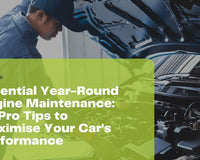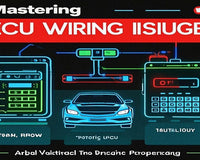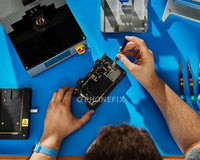Volkswagen vehicles, while popular for their design and performance, is known for its popular models like the Golf, Polo, and Tiguan. However, like any car brand, Volkswagens can develop certain faults over time. VW vehicles often face common issues such as electrical malfunctions, check engine light alerts, and oil problems. Understanding these issues and how to prevent them can enhance the longevity and reliability of your VW.
Oil Leaks: Oil leaks are a frequent complaint among VW owners. These can stem from various sources, including worn gaskets and seals. Regularly checking oil levels and inspecting for leaks can help catch these issues early.
Coolant Leaks: Similar to oil leaks, coolant leaks can lead to overheating and engine damage. It's crucial to monitor coolant levels and inspect hoses and connections for wear and tear.
Electrical Issues: Many VW owners report problems with electrical systems, including faulty wiring, malfunctioning sensors, and issues with the battery and alternator. Powerful FLIR ONE Pro thermal imaging camera lets you find hidden electrical problems. These electrical gremlins can lead to various performance problems, such as dashboard warning lights illuminating unexpectedly.
Timing Belt Issues: A defective timing belt can lead to severe engine problems. VW recommends replacing the timing belt at regular intervals, typically every 60,000 to 100,000 miles, depending on the model.
Transmission Problems: Some VW models experience transmission issues, such as rough shifting or delayed engagement. Regular transmission fluid changes and adhering to the manufacturer's maintenance schedule can mitigate these problems.
Airbag Malfunction: The airbag system can sometimes trigger warning lights due to sensor issues. Regular diagnostics can help identify and resolve these problems before they affect safety.
How to Avoid Common Faults?
Regular Maintenance: Following a strict maintenance schedule is crucial. This includes oil changes, fluid checks, and timely replacements of parts like the timing belt and filters.
Pay Attention to Warning Signs: Be vigilant about dashboard warning lights and unusual noises. Addressing these signs early can prevent more significant issues down the line.
Use Quality Parts: When replacing parts, opt for OEM (Original Equipment Manufacturer) parts to ensure compatibility and reliability. Aftermarket parts can sometimes lead to further issues if they do not meet VW's specifications.
In addition, there are several other common issues that VW owners should be aware of:
Excessive Oil Consumption: Some VW models, particularly those with the 1.8L turbo engine, have been reported to consume oil excessively, which can lead to engine damage if not monitored closely. Regular oil level checks and timely oil changes are essential to prevent this issue from escalating.
Coil Failure: Many VW models experience ignition coil failures, particularly around 70,000 miles. Symptoms include engine misfires, poor acceleration, and backfiring. Addressing coil issues promptly can prevent further engine complications.
Suspension Problems: VW vehicles, especially older models, may develop suspension issues, such as worn strut mounts or failing ball joints, leading to clunking noises when driving over bumps. Regular inspections of the suspension system can help catch these problems early.
Drivetrain Malfunctions: Unusual noises or slipping gears while driving can indicate drivetrain problems. These should be addressed immediately to avoid costly repairs down the line.
Fuel Injector Problems: Malfunctioning fuel injectors can lead to poor engine performance and fuel efficiency. Symptoms include rough idling and difficulty starting the engine. FNIRSI FD10 Car OBD2 Automobile fault diagnosis instrument can read data stream check throttle carbon deposit. Regular maintenance and cleaning of fuel injectors can help mitigate these issues.
While Volkswagen vehicles, including the Jetta, are generally well-regarded for their performance and design, potential buyers and current owners should be aware of these common issues. Prevention is always better than cure, regular maintenance and prompt attention to any warning signs can help mitigate some of these problems and enhance the longevity of the vehicle.









